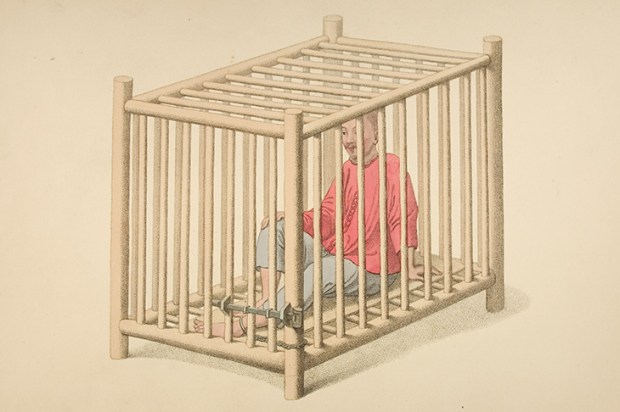From time to time there are journalists who like to aggrandise their humble trade by claiming they are ‘speaking truth to power’. So, where does this (now fairly worn-out) cliché come from? In 1955 the American Society of Friends (otherwise known as the Quakers) published a book called Speaking Truth to Power: a Quaker Search for an Alternative to Violence. That book appears to be the origin of the expression. The Quakers seem to have coined the phrase to describe the approach of Mahatma Ghandi to political dissent. Their phrase was then taken up by others as a way of naming a tactic of non-violent protest. Mind you, even the notorious lefty activist Noam Chomsky has dismissed the notion of ‘speaking truth to power’, saying that power already knows the truth, and is busy suppressing it.
For some time now I have been finding the expression ‘lived experience’ irritating and pretentious. Clearly it means nothing more than ‘personal experience’ so why is this inflated and self-important language being used? The earliest citation I can find for ‘lived experience’ is from 1993, from an academic paper, in which it translates a German word. It appears to have grown out of Edmund Husserl’s philosophy of phenomenology. What is surprising is that in the early-2000s it entered the broader lexicon among the self-consciously important ‘management speak’ class. And I suspect the people talking ‘lived experience’ these days probably think that Edmund Husserl is that bloke reading the news on Channel Nine. I would encourage them to put down their glass of chardonnay long enough to stop being so obviously pretentious.
Did Joe Biden have dementia during his presidency? The truth is now being revealed in a number of books. The best-seller among these ‘now-we-can-tell-you’ books is Original Sin: President Biden’s Decline, It’s Cover-up, and his Disastrous Choice to Run Again by Jake Tapper and Alex Thompson. Tapper (‘Goodness me, I didn’t notice that!’) was one of Biden’s most notorious defenders – attacking Lara Trump over Biden’s incoherent speech, claiming that Biden just ‘had a stutter’. Other books chasing down the same demons include Uncharted: How Trump Beat Biden, Harris and the Odds in the Wildest Campaign in History by Chris Whipple, and Fight: Inside the Wildest Battle for the White House by Jonathan Allen and Amie Parnes.
So, what is the story behind the word ‘dementia’ – that Joe Biden struggled with, and that his supporters struggled to admit? Well, it comes from an identical word in classical Latin which (back in the days of the Roman Empire) just meant: ‘madness, insanity, craziness, folly’. It turns up in English as a medical term from the late-1500s onwards – and the original meaning of ‘dementia’ in English was the same as the Latin word ‘insanity’. But over the centuries, as the science of mental illness developed, this was changed and refined; it came to be seen as primarily a degenerative disease of the brain associated with ageing. Mind you, even for people over 90 there is only a 50-per-cent chance of getting ‘dementia’ – which explains centenarians with razor-sharp brains. On the other hand Joe Biden’s physical decline, memory lapses, and stumbling, incoherent speech were apparent to any open-minded observer. Making the real scandal not the dementia but the cover-up.
Got something to add? Join the discussion and comment below.
Contact Kel at ozwords.com.au
You might disagree with half of it, but you’ll enjoy reading all of it. Try your first month for free, then just $2 a week for the remainder of your first year.













